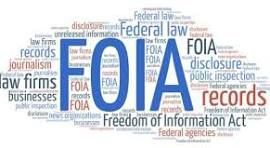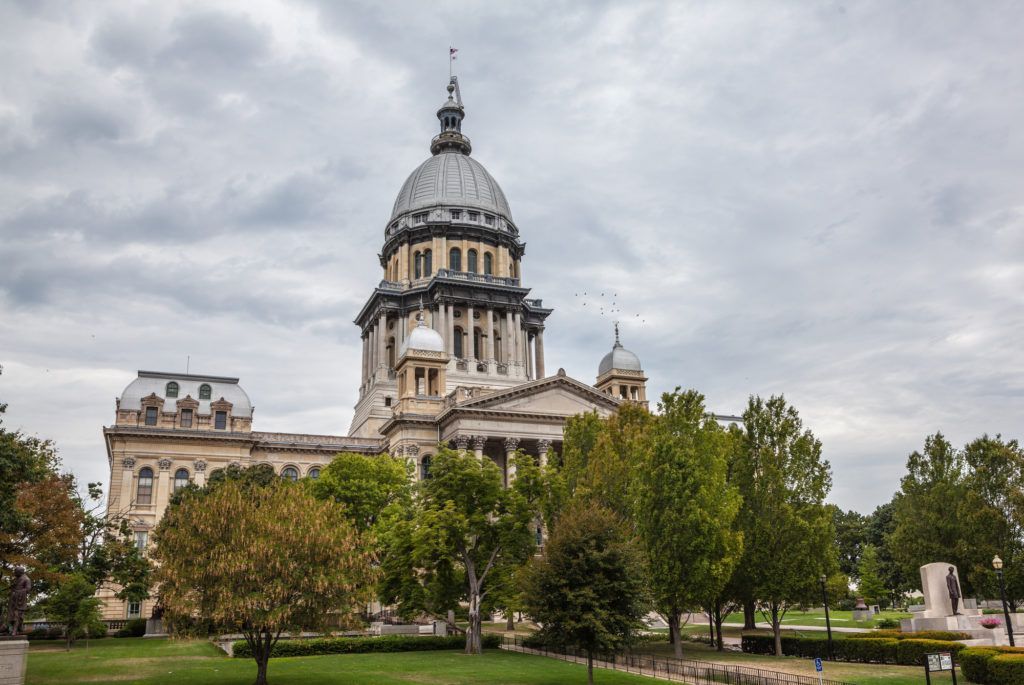
New Laws for Business Owners: What You Need to Know

The corporate world is always evolving with new challenges that seem to occur more and more frequently. Just when you think you are familiar with the requirements of a specific Act, law or statute, amendments invariably occur. Here are a few changes that all Illinois businesses should be cognizant of.
Illinois Family Bereavement Leave Act
Effective January 1, 2023, the once named Child Bereavement Leave Act, adopted in 2016, has been renamed the “Family Bereavement Leave Act” (FBLA), as signed into law as Public Act 102-1050. The former act provided employees unpaid leave time for grievance following the death of a child. Now under FBLA, employees are entitled up to 10 workdays of unpaid leave time following the death of a covered family member, stillbirth, miscarriage, unsuccessful reproductive procedure, failed adoption match or unfinalized adoption agreement, failed surrogacy agreement, or diagnosis that negatively impacts pregnancy or fertility. FBLA further defines “covered family members” to include stepchildren, spouses, domestic partners, siblings, parents, and a spouse's parents, grandchildren, grandparents and stepparents.
What does this look like on the employers' side? The employee must have worked for the employer for no less than 12 months prior to requesting FBLA leave and actively worked for their employer for at least 1,250 work hours during the preceding 12-month period. FBLA leave must be concluded within 60 days subsequent to the date the employee receives notice of the event and employers are entitled to 48 hours of notice before the leave, unless it is not practicable. While employers may require documentation to verify the necessity for the requested FBLA leave, they may not require an employee to classify which type of event the FBLA leave relates to as a condition of applying for or receiving leave.
Illinois One Day Rest in Seven Act amendment
Senate Bill 3146 took effect January 1, 2023, amending the One Day Rest In Seven Act (ODRISA). ODRISA amendments redefine the period in which an employee is entitled to “twenty-four consecutive hours of rest,” incorporates new meal break, and employer notice requirements. In addition, the amendments also increase penalties for employers that violate the meal and rest break requirements. While ODRISA continues to apply to employers with one or more employees in Illinois, it continues to exclude a number of employees from coverage, including part-time employees who do not exceed 20 hours in a work week and employees who are employed in a bona fide executive, administrative, or professional capacity, or as an outside salesman, as defined by the federal Fair Labor Standards Act (FLSA). It also includes one new category of employees excluded from coverage: “Employees for whom work hours, days of work, and rest periods are established through the collective bargaining process.”
Currently, ODRISA requires employers provide covered employees with “at least twenty-four consecutive hours of rest in every calendar week.” The amendment now requires “at least twenty-four consecutive hours of rest in every consecutive seven-day period.” Consequently, any employee who works six consecutive days, regardless of whether the employee’s schedule aligns with a normal Sunday to Saturday workweek, are allowed an uninterrupted 24 hour period of rest. Employers can request permits from the Illinois Department of Labor authorizing the employer to require employees to work on designated days of rest based on business necessity and economic viability.
Illinois Non-Compete Clauses
As of January 1, 2022, the Illinois legislature amended the Illinois Freedom to Work Act, Illinois Senate Bill 672 (the Amendment). The Amendment codified numerous limitations related to restrictive covenants, including non-compete and non-solicit agreements, which were previously only addressed by judicial decisions. The Amendment also imposed new obstacles around non-competes and non-solicits.
As amended, the Freedom to Work Act prohibits non-compete agreements for employees earning $75,000 per year or less. The Amendment likewise prohibits customer and co-worker non-solicit agreements for employees earning $45,000 per year or less. The salary threshold will increase to account for inflation through 2037. For non-competes the thresholds will increase as follows: $80,000 by January 1, 2027; $85,000 by January 1, 2032; and $90,000 by January 1, 2037. For non-solicits, the threshold will increase as follows: $47,500 in 2027; $50,000 in 2032; and $52,500 in 2037. The non-compete agreements are prohibited for union employees bound by a collective bargaining agreement and who work in construction or are covered by the Illinois Public Relations Act or the Illinois Educational Labor Relations Act. This exception does not apply to workers in the construction industry who also have management or other duties (e.g., engineering, architectural, design, or sales), or “who are shareholders, partners, or owners in any capacity of the employer.”
For a non-compete or non-solicit to be enforceable, it must be supported by (1) the employee receives adequate consideration, (2) the covenant is ancillary to a valid employment relationship, (3) the covenant is no greater than is required for the protection of a legitimate business interest of the employer, (4) the covenant does not impose undue hardship on the employee, and (5) the covenant is not injurious to the public. Adequate consideration is defined by the Freedom to Work Act to mean: (1) two years of employment after the employee signs the non-compete or non-solicit; or (2) other consideration adequate to support an agreement to not compete or to not solicit, which consideration can consist of a period of employment plus additional professional or financial benefits or merely professional or financial benefits adequate by themselves. Additional relevant factors include the employee’s exposure to the employer’s customer relationships or other employees; the near permanence of customer relationships; the employee’s acquisition, use, or knowledge of confidential information; and the time, place, and scope of restrictions. The Amendment further requires employees who are asked to sign a non-compete or a non-solicit be given at least 14 calendar days to review the agreement notification in writing to consult with counsel before signing the agreement must be provided. Failure to comply with these conditions will render the Agreement illegal and void.
Federal “Speak Out Act”
Senate Bill 4524, known as the Speak Out Act, prohibits the judicial enforceability of a nondisclosure clause or non-disparagement clause agreed to before a dispute arises involving sexual assault or sexual harassment in violation of federal, tribal, or state law. It applies to “claims” filed on or after December 7, 2022.
A nondisclosure clause is unenforceable if it (i) was entered into before a dispute alleging sexual assault or sexual harassment under federal, state, or tribal law and (ii) “requires the parties not to disclose or discuss the conduct, a settlement involving the conduct, or information covered by the terms and conditions of the contract or agreement.” A non-disparagement clause is unenforceable if it (i) was entered into before a dispute alleging sexual assault or sexual harassment under federal, state, or tribal law and (ii) requires one or more parties “not to make a negative statement about another party that relates to the contract, agreement, claim, or case.”
Specifically, under the Act: (a) With respect to a sexual assault dispute or sexual harassment dispute, no nondisclosure clause or non-disparagement clause agreed to before the dispute arises shall be judicially enforceable in instances in which conduct is alleged to have violated Federal, Tribal, or State law; (b) Nothing in the Act shall prohibit a State or locality from enforcing a provision of State law governing nondisclosure or non-disparagement clauses that is at least as protective of the right of an individual to speak freely, as provided by this Act; (c) The Act shall not be construed to supersede a provision of Federal, State, or Tribal Law that governs the use of pseudonyms in the filing of claims involving sexual assault or sexual harassment disputes; and (d) Nothing in the Act shall prohibit an employer and an employee from protecting trade secrets or proprietary information.
The Act further does not limit the use of nondisclosure or non-disparagement clauses in agreements, such as separation or settlement agreements, entered into after a dispute concerning sexual harassment or sexual assault arises, nor does it impact agreements regarding employer trade secrets and other proprietary information.

CONTACT US TODAY
Contact Us
We will get back to you as soon as possible.
Please try again later.
LOCATION
570 Lake Cook Road, Unit 119
Deerfield, IL 60015
Shapiro & Associates Law | All Rights Reserved |
Created by Olive + Ash.
Managed by Olive Street Design.









